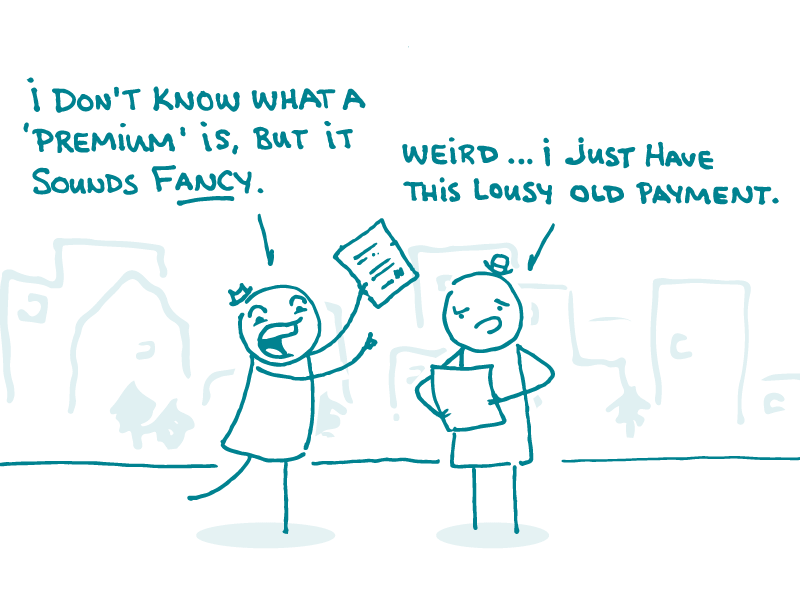
Update (May 2018): Since we wrote this post more than 4 years ago, HealthCare.gov has updated its definition of “premium” from “the amount that must be paid for your health insurance or plan” to the way more conversational “amount you pay for your health insurance every month” (pause for applause).
Today, we tackle the ever-present health insurance “premium” — or, as it’s sometimes defined: “The amount that must be paid for your health insurance or plan.”
Hang on. Wouldn’t the “amount that must be paid” be … a payment? Why not just say “monthly payment” instead? To most folks, that’s what “premium” usually means in the context of health care.
One of the health literacy principles we live (and write) by is to always use the simplest words available to communicate information. If a complicated word is essential, by all means, use it — being sure, of course, to define or explain it. But if a term isn’t essential, just don’t use it.
Let’s put “premium” to the test. Is there any difference in meaning between the following sentences?
- Your premium is due on the first of the month.
- Your monthly payment is due on the first of the month.
Right. Our vote here: “premium” isn’t essential.
If you really think your readers needs to learn the term “premium,” we recommend saying “monthly payment (also called a premium).”
The bottom line: Terms like “deductible” and “co-payment” are essential when talking about health insurance — but “premium” isn’t. Try “monthly payment” instead.
Tweet about it: If you mean payment, say payment (not premium): http://bit.ly/1aaPyOI #HealthLit via @CommunicateHlth
Browse recent posts